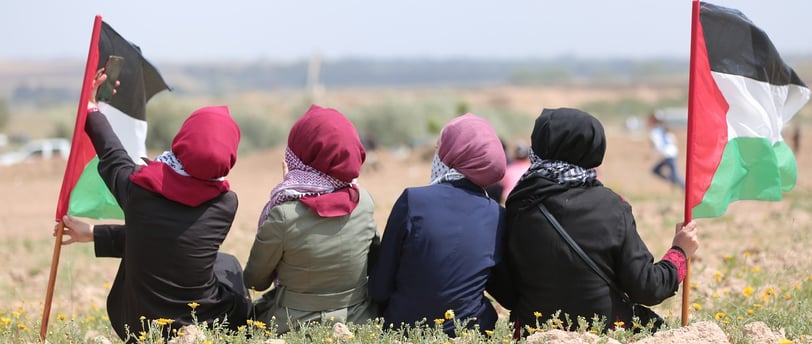Escalating Tensions in the Israel-Palestine Conflict: A Grim Update
The Israel-Palestine conflict has escalated dramatically in 2024, resulting in thousands of casualties, widespread destruction in Gaza, and a deepening humanitarian crisis, with little hope for a ceasefire or resolution.
POLITICS


A Renewed Wave of Violence
The Israel-Palestine conflict, one of the world's most enduring and contentious disputes, has reached new levels of intensity in recent months. As of August 2024, the violence between Israeli forces and Palestinian militants continues unabated, leaving a trail of devastation and a humanitarian crisis that shows no sign of abating.
Casualties and Destruction in Gaza
The Gaza Strip, under siege for more than a decade, has borne the brunt of Israeli military operations. According to recent reports, the death toll in Gaza has surpassed 39,000 since the conflict reignited in late 2023. Israeli airstrikes have targeted both military and civilian infrastructure, with entire neighborhoods reduced to rubble. The health ministry in Gaza, controlled by Hamas, has reported widespread casualties, with hospitals overwhelmed by the influx of injured civilians.
The destruction of homes, schools, and hospitals has left tens of thousands of Palestinians displaced, exacerbating an already dire humanitarian situation. Aid organizations have struggled to deliver essential supplies to those in need, as the ongoing conflict severely restricts access to affected areas.
Political Ramifications and Regional Tensions
The political landscape surrounding the conflict has grown increasingly complex. Hamas, the militant group governing Gaza, recently appointed Yahya Sinwar as its new leader following the assassination of Ismail Haniyeh in Tehran. Sinwar's ascension to power marks a significant shift in the group's leadership dynamics and has led to renewed pledges of resistance against Israel.
Meanwhile, the Israeli government, led by Prime Minister Benjamin Netanyahu, has rejected international calls for a ceasefire. The Israeli military continues to conduct operations not only in Gaza but also in southern Lebanon, where tensions with Hezbollah have escalated. The potential for a broader regional conflict remains high, with both sides engaged in a cycle of retaliation.
International Responses and Diplomatic Efforts
The international community has been deeply divided in its response to the conflict. The United States, while expressing support for Israel's right to defend itself, has also attempted to mediate a ceasefire. However, these efforts have been complicated by the involvement of regional powers such as Iran, which has been accused of supplying advanced weaponry to Palestinian militants.
Diplomatic efforts to bring about a lasting peace have largely stalled. Egypt and the United Arab Emirates have expressed conditional support for a peacekeeping force in Gaza, but their proposals hinge on the acceptance of a two-state solution—a framework that Netanyahu's government has categorically rejected. Meanwhile, countries like Jordan and Saudi Arabia have voiced strong opposition to any military intervention that might further destabilize the region.
The Humanitarian Crisis
The ongoing conflict has precipitated a humanitarian disaster of unprecedented proportions. The United Nations and various NGOs have reported severe shortages of food, clean water, and medical supplies in Gaza. The blockade imposed by Israel, combined with the destruction of critical infrastructure, has left the population in a state of extreme vulnerability.
International relief efforts have been hampered by the continuous bombardment and the destruction of supply routes. The World Health Organization has warned of a looming health crisis, with outbreaks of disease likely due to unsanitary conditions and the collapse of the healthcare system.
Looking Ahead: A Bleak Future
As the conflict drags on, prospects for peace appear increasingly remote. Both sides remain entrenched in their positions, with little willingness to compromise. The international community, while vocal in its condemnation of the violence, has thus far been unable to effect meaningful change on the ground.
The situation in Israel and Palestine is a tragic reminder of the deep-seated divisions and historical grievances that continue to fuel this conflict. Without significant intervention and a renewed commitment to dialogue, the cycle of violence is likely to continue, with devastating consequences for all involved.
The road to peace remains uncertain, but the need for a resolution is more urgent than ever.
